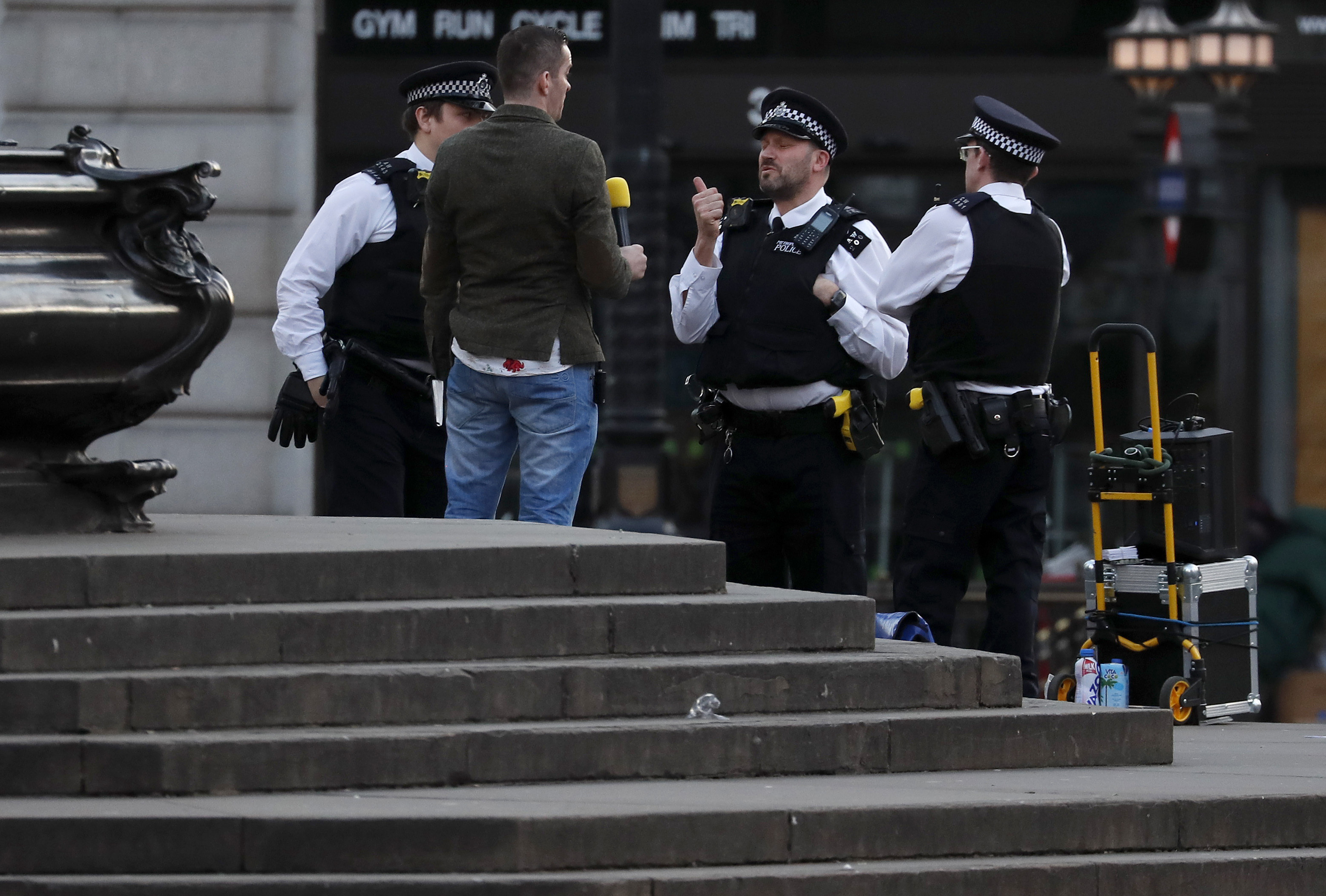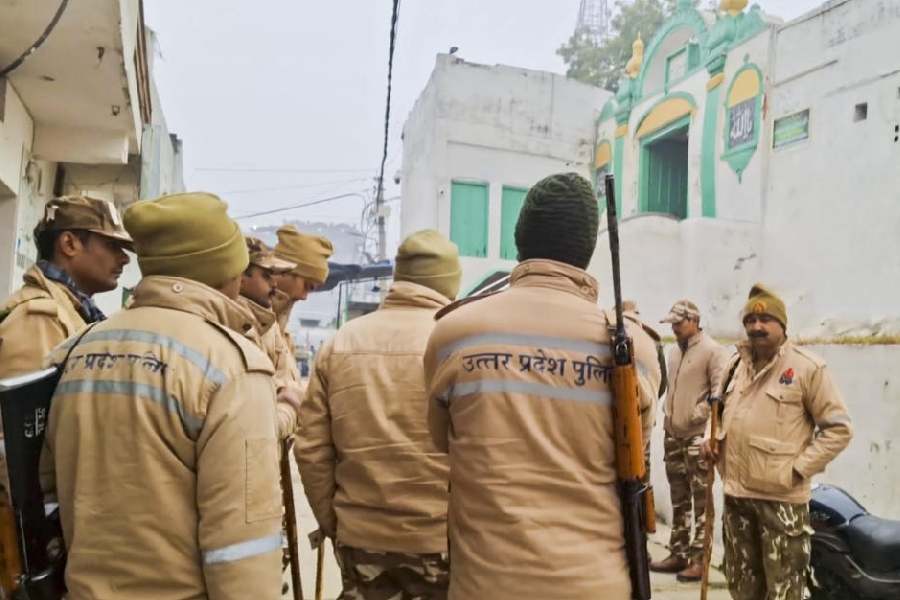Police in Britain will now be able to force people to stay at home under the toughest new restrictions announced by Boris Johnson in a national broadcast from 10, Downing Street, on Monday evening.
Speaking after the UK death toll reached 335, the Prime Minister introduced unprecedented restrictions on everyday life, meaning people must leave their house for one of only four reasons — to exercise once a day, to travel to and from work where “absolutely necessary”, to shop for essential items such as a food and medicine, and to fulfil any medical or care needs.
“If you don’t follow the rules the police will have the powers to enforce them, including through fines and dispersing gatherings,” he said.
The drastic measures brought in to tackle coronavirus were reflected in Tuesday’s dramatic headlines, such as “End of freedom” in The Daily Telegraph, “Britain shuts up shop” in the Daily Mail, “National Lockdown” in the Daily Mirror, and “House arrest” in the Sun which featured a picture of a giant padlock on its front page.
Amid fears that Britain will follow Italy’s escalating death toll, Johnson explained: “Without a huge national effort to halt the growth of this virus, there will come a moment when no health service in the world could possibly cope, because there won’t be enough ventilators, enough intensive care beds, enough doctors and nurses.
“To put it simply, if too many people become seriously unwell at one time, the NHS will be unable to handle it — meaning more people are likely to die, not just from coronavirus but from other illnesses as well.
“From this evening I must give the British people a very simple instruction — you must stay at home.We will look again in three weeks, and relax them if the evidence shows we are able to.But at present there are just no easy options. The way ahead is hard, and it is still true that many lives will sadly be lost.”
Jump in cases
The number of coronavirus deaths in Britain jumped on Tuesday, the first day of a national lockdown, while the government called for 250,000 volunteers for the health service and announced a temporary hospital would open in London next week.
And on Tuesday, a senior cabinet minister, Michael Gove, warned that if people continued to behave in “an anti-social way” — many people congregated in parks and public spaces at the weekend or queued for fish and chips by the beach on a sunny Sunday — further even “stronger measures” will be imposed.
“The police have a range of enforcement tools, and of course fixed-penalty notices and fines are just one of them. If people do persist in behaving in an anti-social way, there are stronger measures that we have.
“The legislation will be in place in order to ensure that we have appropriate penalties and appropriate punishment for those people who do not adhere to the clear advice that the government has given and that the police are ready to enforce.”
Other anti-social practices that the government will have to get round tackling are profiteering and hoarding.
Green chillies have been marked up to £17.99 a kilo and karela to £9.99 a kilo as some Indian shopkeepers allegedly go in for blatant profiteering at a time of panic buying across the country because of the coronavirus pandemic.
Normally £1 would buy more than enough for a family of four for several days.
Other reports speak of large bags of atta and rice being unloaded on to the market at prices well in excess of £100 – normally they would sell for £20 to £30 depending on the brand.
While most English families are stockpiling for personal use, despite being urged by the government not to do so, a number of Indians “have filled their homes to the ceiling with toilet rolls and other essential goods, probably with a view to selling them on eBay for as much money as they can get”, a source told The Telegraph.
The Tory peer, Rami Ranger, a respected figure in the Indian community, warned that both profiteering and hoarding “are criminal offences”.
Those who engaged in such practices “are ripping people off,” he raged. “Toilet rolls are being sold for £18 a pack (instead of £2.50). You can report them to trading inspectors. If shopkeepers cannot show invoices to back up claims of higher cost of purchase, they can be prosecuted.”











